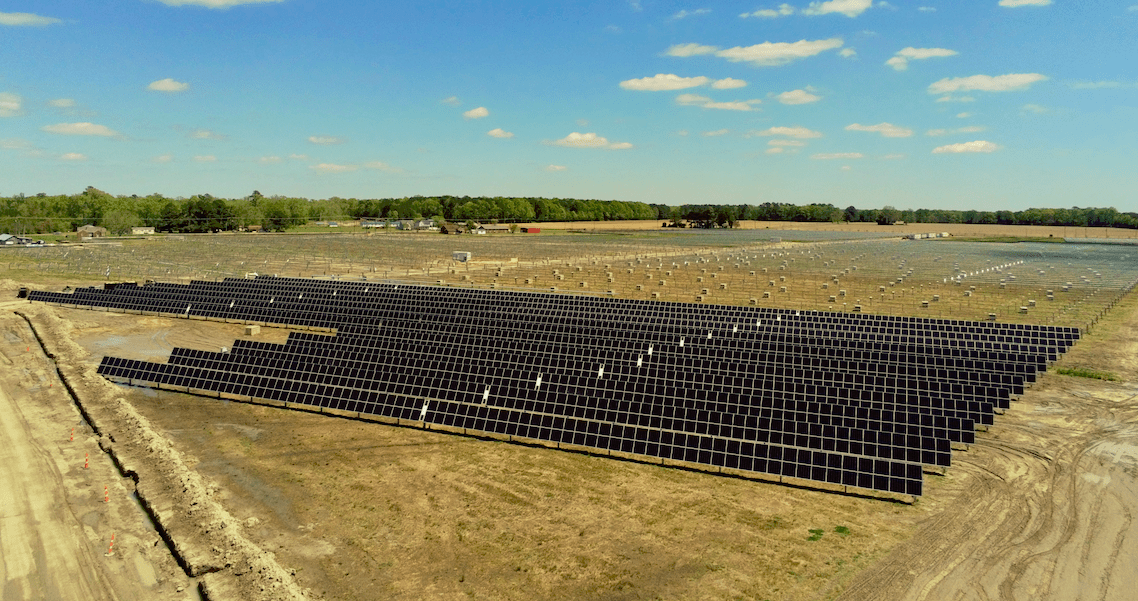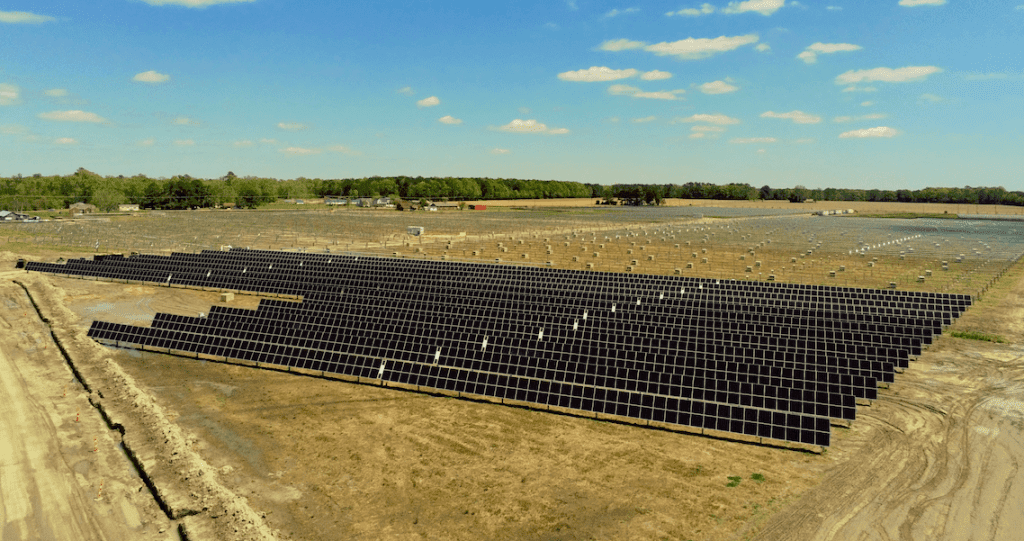The post Sweet Deal—Hershey, Others Have Solar Pacts appeared first on POWER Magazine.

A well-known chocolate maker has announced two new clean energy partnerships as the company continues to increase its sustainability efforts.
The Hershey Co. on April 20 said it has power purchase agreements (PPAs) to take electricity from two solar projects, one in North Carolina and another in Texas. Hershey, like many corporate power customers, has set a goal to reduce its carbon footprint and has begun investing in renewable energy developments. The Pennsylvania-based snacks producer on Tuesday said the projects “will support the company’s recently announced science-based targets commitments to reduce greenhouse gas (GHG) emissions.”
Hershey is executing a 15-year PPA for a 20-MWac solar farm being developed by BayWa r.e. in Camden, North Carolina (Figure 1). Construction of the project, located on 218 acres, is expected to be completed in late July, according to the companies.

The second PPA has been signed with National Grid Renewables for 50 MWac of the Noble Project, currently under construction in Denton County, Texas. Hershey’s solar contract will account for an estimated 118,000 MWh of electricity annually. Hershey is joining The Home Depot and NRG Energy as customers of the Noble Project, which includes 275 MW of solar power generation capacity along with 125 MWh of battery storage.
Hershey has said investments in renewable energy, along with energy efficiency projects, are a focus for the company as it works to reduce “Scope 1 and 2 emissions by more than 50% by 2030.” According to the U.S. Environmental Protection Agency (EPA), Scope 1 emissions “are direct [GHG] emissions that occur from sources that are controlled or owned by an organization,” such as emissions from boilers, furnaces, and vehicles. The EPA defines Scope 2 emissions as “indirect GHG emissions associated with the purchase of electricity, steam, heat, or cooling.”
“As we continue on our path towards an increased reliance on clean and renewable energy, we’re excited to partner with BayWa r.e. and National Grid Renewables to develop these solar projects in North Carolina and Texas,” said Jeff King, senior director of Global Sustainability and Social Impact for Hershey. “Not only will these solar farms help Hershey to reduce its impact on the environment, they will also create jobs and help contribute to the growth of local economies and our commitment to reduce our GHG footprint.”
“We’re committed to a clean energy future, and we’re thrilled to work with forward-looking, corporate leaders like Hershey to address their ambitious climate goals,” said Jam Attari, CEO of BayWa r.e. Solar Projects LLC in the U.S. “Renewable projects like Camden both support decarbonization efforts and have been the driver of skilled jobs creation in the energy economy and transition required to meet the continuing needs of these market leaders.”
Edison Energy, a sustainability and energy management consultancy, advised Hershey on its environmental initiatives and selection of BayWa r.e. and National Grid Renewables as solar developers. Edison Energy has advised global companies, universities and cities on more than 6.7 GW of renewable energy projects across North America and Europe.
“Known for its chocolate, Hershey is increasingly becoming a champion of sustainability. These two solar projects are just part of the story,” Oded J. Rhone, CEO of Edison Energy, told POWER. “We’ve been able to help this iconic brand navigate the various choices and costs involved in investing, developing, and buying renewable energy to cut Hershey’s carbon footprint by more than 50% by 2030.”
Texas Project
The Noble Project is expected to begin operation in the first half of 2022. Project officials on Tuesday said the installation would utilize about 250 workers during construction, have three to five permanent jobs for operations and maintenance, and provide about $ 26 million in tax revenue through its first 20 years of service.
“National Grid Renewables is proud to work with some of the nation’s most prominent businesses to bring Noble forward for the local community of Denton and the state of Texas,” said David Reamer, head of Development, U.S. Onshore Renewables for National Grid Renewables. “Like all renewable energy projects, Noble will provide impactful, cost-effective, and reliable clean energy generation that will create tremendous economic benefits for local businesses and residents.”
Noble will utilize next-generation Series 6 thin-film solar modules developed and produced by First Solar Inc. “By using First Solar modules, Noble will generate some of the lowest carbon solar electricity possible today,” said Georges Antoun, chief commercial officer for First Solar. “With this project, National Grid Renewables demonstrates how lower carbon, responsible solar electricity produced with American solar technology can competitively and reliably power iconic U.S. businesses.”
National Grid Renewables, based in Bloomington, Minnesota, develops renewable energy projects across the U.S., including solar, wind, and energy storage installations. The company owns and operates large-scale renewable energy assets, and works with renewable energy purchasers. Its customers include regulated investor-owned utilities, member-owned electric cooperatives, public power entities, corporations, universities, and government agencies.
“National Grid Renewables is proud to partner with Hershey and other stakeholders on Noble to provide strong economic benefits for the local community of Denton County,” said Nathan Franzen, vice president of Development for National Grid Renewables, noting the jobs and revenue created by the project. He said, “millions of dollars will be produced locally through new tax revenue creation and increased spending— all while generating clean, solar energy for Texas residents.”
Sustainability Goals
King noted how efforts to make Hershey a more sustainable company are impacting its operations. “As a company, our sustainability goals are changing the way we do business,” said King. “Solar projects, like Noble, will help us continue on our path towards increasing reliance on clean and renewable energy across all of our operations.”
The Home Depot also has made sustainability part of its business. The company has pledged to reduce its carbon dioxide emissions by 50% by 2035, and recently said its U.S. stores use 35% less electricity than they did in 2010.
“Our partnership with National Grid Renewables reinforces our commitment to reduce our impact by continually improving the efficiency of our operations and expanding investments in renewable and alternative energy,” said Ron Jarvis, chief sustainability officer at The Home Depot. “We are on track to meet or exceed our goal to procure or produce 335 megawatts of renewable or alternative energy by 2025.”
NRG Energy, the Houston, Texas-based utility, has a goal of net-zero emissions by 2050. The company has produced sustainability reports for its operations for more than a decade and continues to build its renewable energy portfolio.
“The call to decarbonize our economy continues to grow,” said Robert Gaudette, senior vice president of NRG Energy. “We look forward to taking another step toward a more sustainable energy future. Through renewable energy and the support of local communities, we are able to provide our customers with more energy solutions.”
—Darrell Proctor is associate editor for POWER (@POWERmagazine).
The post Sweet Deal—Hershey, Others Have Solar Pacts appeared first on POWER Magazine.